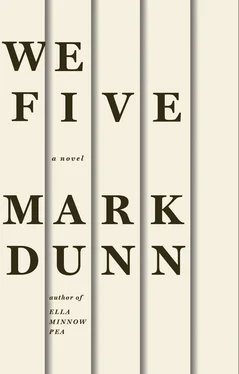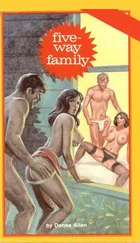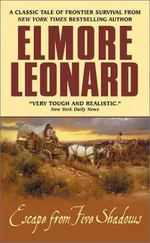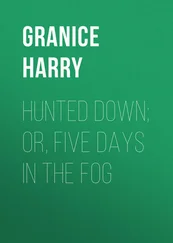Next oldest by but a few weeks was the wittiest of the five, Jeremiah Castle. Jeremiah — familiarly called Jerry — was an orphan. He was, at a very young age, taken in by a benevolent cheesemonger and his equally benevolent wife, in whose company he grew to solid, strapping manhood (largely through the hoisting of heavy cheese wheels). Jerry was the strongest of the group, and though quick to put his opinions forward and to lose his temper with those who did not subscribe to them, yet he would never engage his fist unless it was absolutely necessary, and even then would apply it with measured restraint, lest the recipient of his displeasure incur permanent bodily injury.
Next came Tom Catts, who wore thick mustachios, in part to hide his plump, girlish lips, which were the object of ribald remarks by his companions, although he could certainly melt the heart of any member of the gentler sex who found soft blue-grey eyes, ruddy cheeks, and pouting, bristle-browed lips to be creditable aspects to the physiognomy of a young man. Unfortunately, Tom’s character was blemished by a scheming, unscrupulous nature. Intrigue was mother’s milk to him, and it pleased him to no end to get the best of others. He did not see himself dwelling forever in the company of his four mates, for there were mountains to be climbed and fortune to be chased, and most importantly, people — a good many people — to be bested.
The youngest-but-one of the group was William Holborne, called Will, whose ancestors came from someplace with fjords. He had a thick shock of straw-coloured hair, which grew even blonder in the radiant summer sun, and a baby caterpillar fixed above his upper lip, so lightly shaded as to be missed in bright illumination. He had bulging Viking arms and a buckler-like chest, and whereas Jerry was blessed with the kind of bodily strength that is marked by sinew and agility, Will’s physical prowess was muscle-bound and all but enchained, save when it should be summoned in a burst of brute force, such as upon the occasion in which one of the looms came crashing down on its operator and Will was called upon to lift it single-handedly to the plaudits of all his co-workers and to the tearful, though largely moot, gratitude of the operator’s widow (for the crush had unfortunately been too great for her frail and diminutive husband’s body to survive).
The baby boy of the bunch — a lad of a mere nineteen years of age — was given the name Patrick Harrison at birth, though he was usually called Pat — that is, when he wasn’t Runt, Scrunt, “Papist Paddy,” and “Hairless-son,” as pleased his four friends, who tolerated his tagging along with them in the beginning with only the greatest reluctance. Yet later, after he had grown out of knee-shorts, Pat’s gaping ignorance and pop-eyed ingenuousness came to be regarded as almost endearing, and so he was welcomed into the manly society of the other four without regret. Pat became the willing pupil of his four teachers, who instructed him in the arts of manhood, sometimes with secretly cruel intent, but just as often with some measure of manfully masked compassion.
Pat was, in a word, stupid. He had a boyish face and a most handsome turn of the mouth, and mud-coloured hair that was long and fell with whimsical negligence over his roguish blue-eyes. He bore, in some aspects — such as the winsome cleft in the chin — a striking similarity in appearance to our comely young Molly. But unlike the youngest member of the five sewing circle sisters, who had a head upon her shoulders that would serve her well (whenever she took a mind to use it), Pat, on the other hand, was, and forever would be , an amusing dolt — a silly pup to be either kicked or snuggled as circumstance required.
Whether Tom or Pat should be deemed the best-looking of the five is entirely a matter of opinion. Tom’s looks tended slightly to the feminine and Pat’s to the fuzz-faced man-child, and neither of the two had any idea as to which of them was the better favoured, nor did they necessarily care, as most men generally do not, unless they be foppish and overbred. Yet there was one of the other three who was neither of these two things, and who, in fact, cared a great deal, for he was drawn to male pulchritude as part and parcel of his exceptional nature, this verity placing him in league with Ruth, who had a similar affinity for her own sex. For what it is worth, this young man, whose identity shall later be revealed, found Pat to be the better-looking of the two, and so treated him with demonstrably more fondness than he did his other mates.
“If you shilly-shally a moment longer, Tom Cat,” bawled Holborne, “you will find yourself unveiling your brilliant scheme just as its intended recipients come trooping out to take their little turn in the fresh air. It should be an awkward moment, largely avoidable by any man with half a brain. Speak, sir!”
Tom Catts responded by placing a silencing finger to his lips. Then he said softly, “If you would kindly keep your own voice down to a chick-peep, Holborne, the gossiping wife of a certain shoemaker won’t have opportunity to spread intelligence of my plan all the way from here to Manchester.”
“Then let us discuss the matter elsewhere,” offered Holborne, who belied his suggestion by moving not an inch from his spot whilst falling to his repast of crusty loaf and butter and cold loin of mutton as if it were the finest feast ever put before him.
“There’s to be no discussion,” pronounced Catts, “until I receive a sign from the modiste’s front window. Without it, the plan will expire in the cradle.”
“What manner of sign?” asked Pardlow, looking up from his book. Though the studied absorption of what he was reading generally proceeded apace without regard to where he was or how the world was spinning round him, Pardlow possessed a valuable facility for keeping himself peripherally attentive to anything being said within earshot that might redound either to his benefit or misfortune. For he was not the sort of young man to immerse himself so deeply in a book that he should be flattened in the lane by a runaway gig or have the wall of a house fall down upon him unawares until he be dead.
Catts replied: “A sign proffered by the delightful Miss Higgins.”
“The delightfully ill-favoured Miss Higgins,” croaked Castle with callous merriment. “Of the five, this is the one who has drawn your strongest interest? Powers above, Catts! Have you suddenly become struck with the same disease of acute myopia which afflicts our friend Pardlow?”
“I will have you know, sir,” readily protested that very object, “that there are things I can see quite clearly without even need of my eye-glasses!”
“Things two inches from your peeps!” croaked Castle again.
This statement propelled Pardlow from his seat. He moved his own face to within two or three inches of Castle’s, so the two men nearly touched noses. “What I see at this distance, Castle, is a boor who is constitutionally incapable of keeping his tongue inside his lip-flapping mouth. Miss Higgins may not possess so beautiful a countenance as her fellow seamstresses, but she is nevertheless wholly un deserving of your disapprobation.”
“Duly noted,” said Tom Catts, as he retrieved his bespectacled friend from the provocative vicinity of the group’s most inflammatory member and eased him back down upon the bench. “Jerry means only that Miss Higgins isn’t the loveliest flower in the spray. Yet to me she possesses charm and wit and there’s a twinkle in her eye, which our friend might catch if he paid better attention to all the maidens in their daily promenade.”
Castle wrinkled his lips in annoyance over having been so hastily confronted by the one among them least given to provocation (for Pardlow generally kept his own displeasure to an all-but-silent simmer). “I would not know, Catts, if Miss Higgins or any of the other maidens has charm or wit or just what their eyes do when one beholds them, with the singular exception of the bonny-faced Miss Barton who would command my attention from even the greatest distance.”
Читать дальше












